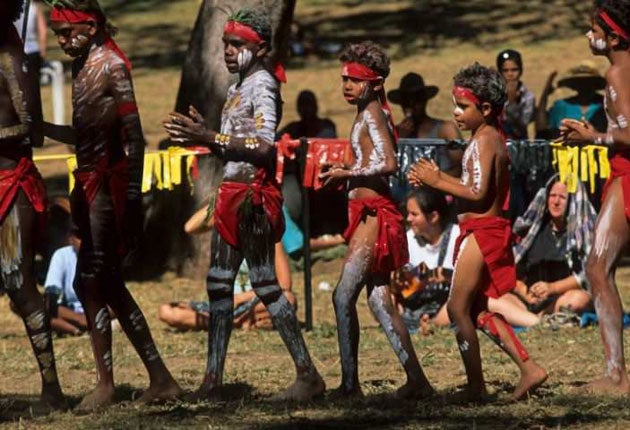National Sorry Day: How Australia apologises to the Aborigines for the wrongs of the past
Indigenous people honoured as country commemorates Stolen Generation

Australia marks National Sorry Day every 26 May.
Unlike Anzac Day, which celebrates the heroism of Australian and New Zealand troops fighting overseas, Sorry Day is an occasion for solemn commemoration of the mistreatment of Aborigines and Torres Strait Islanders throughout the country's history.
Begun as a national day of mourning in 1998 for the Stolen Generation – those children of indigenous people forcibly separated from their families by federal, state and church authorities between 1905 and 1967 – the date was chosen to remember the Bringing Them Home report being tabled in Parliament in 1997.
The official survey, carried out by the Human Rights and Equal Opportunity Commission, records a dark episode in Australian history, revealing the devastating details of the lives of those taken from their mothers and raised in orphanages and foster homes by whites in a misguided attempt to better assimilate them within Australian society. Many were beaten, raped and abused by their intended protectors, often in remote areas like the Northern Territory.
The day also serves as a means of apologising to the Outback's indigenous people for the brutal treatment they were subjected to by colonial forces in the 19th century, when many were viciously hunted and slaughtered on the racist premise that their "stone age" culture had no place in the New World.
The prejudices of the past have not entirely gone away, however. Conservative prime minister John Howard, in office at the time of the report's publication, dismissed judge Sir Ronald Wilson's call for a formal apology to be issued, rejected the idea that Aborigines had been the victims of genocide and complained of an "Aboriginal guilt industry", an attitude still shared by some, typically in rural parts.
His successor Kevin Rudd did make a historic apology to the Aborigines in Perth on 13 February 2008, saying sorry for the state's having "inflicted profound grief, suffering and loss on these our fellow Australians". He pledged to close the gap between white and Aboriginal Australians in "life expectancy, educational achievement and economic opportunity".
Oxfam points out that Aborigines and Torres Stait Islanders are still living 10 to 17 years less than white Australians, have an infant mortality rate twice that of their peers and are more likely to die of preventable diseases of the heart and kidney and to suffer diabetes, so there is still plenty of work to be done.
The day was officially renamed the National Day of Healing (although it is still colloquially known as Sorry Day) by the National Sorry Day Committee in 2005 and is marked with ceremonies, marches and speeches across the nation celebrating Aboriginal art and culture and discussing the harrowing experiences of the Stolen Generation.
In 2000, more than 250,000 people took part in the Bridge Walk across Sydney Harbour Bridge in support of reconciliation.
The Healing Foundation, set up by the human rights organisation Reconciliation Australia, has also been established to work with members of the Stolen Generation on coming to terms with their past treatment and reconnecting with lost relatives.
Join our commenting forum
Join thought-provoking conversations, follow other Independent readers and see their replies
Comments
Bookmark popover
Removed from bookmarks